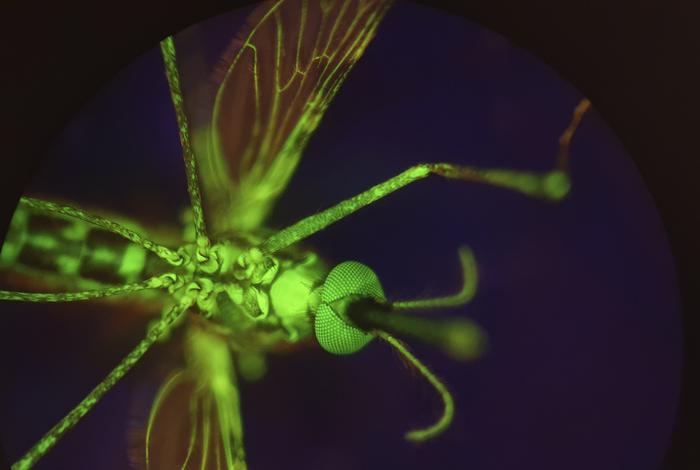
New drug kills mosquitos by blood poisoning
A drug named nitisinone, EU-approved for the treatment of metabolic diseases, also shows strong mosquito-killing properties. According to researchers headed by Lee Haines, it turns human blood toxic to Anopheles mosquitoes that transmit Plasmodium falciparum, the most deadly form of malaria.
Recent studies have identified 4-hydroxyphenylpyruvate dioxygenase (HPPD), an enzyme of the tyrosine detoxification pathway, as essential for hematophagous arthropods such as Anopheles mosquitos to digest their blood meals. The research led by Lee Haines and Álvaro Acosta-Serrano from Liverpool School of Tropical Medicine, which includes data from humans who took nitisinone, hints that nitisinone might be translated into a a repurposed drug that kills female mosquitoes preventing them from transmitting malaria. This parasitic infection remains one of the leading causes of death worldwide, with most of these deaths occurring in low- and middle-income countries.
Typically, health authorities have relied on insecticides, genetic mosquito population control and mosquito nets to kill off or deter the mosquitoes that transmit the malaria parasite, Plasmodium. However, progress has slowed in the past decade because mosquitoes have grown resistant to insecticides, and Plasmodium has also started to evolve resistance to some antimalarial drugs.
Searching for a new malaria control strategy, Haines and colleagues turned to drugs called endectocides, which are routinely used in veterinary medicine to kill off blood-feeding parasites. They focused on nitisinone, an approved treatment for metabolic disorders such as alkaptonuria.
The team demonstrated that nitisinone targets an enzyme named HPPD, which mosquitoes rely on to digest blood. Pharmacokinetic-pharmacodynamic (PK/PD) modeling of nitisinone’s dose-response relationship (when administered at the highest recommended doses for adults and children) demonstrated improved efficacy against mosquitoes compared to the gold standard endectocidal drug, ivermectin. Furthermore, blood samples from individuals with alkaptonuria (a rare genetic metabolic disorder in the tyrosine degradation pathway), who were taking a daily low dose of 2 milligrams of nitisinone, were shown to be lethal to mosquitoes. Thus, inhibiting the Anopheles HPPD enzyme with nitisinone warrants further investigation as a complementary intervention for vector control and the prevention of malaria transmission.


